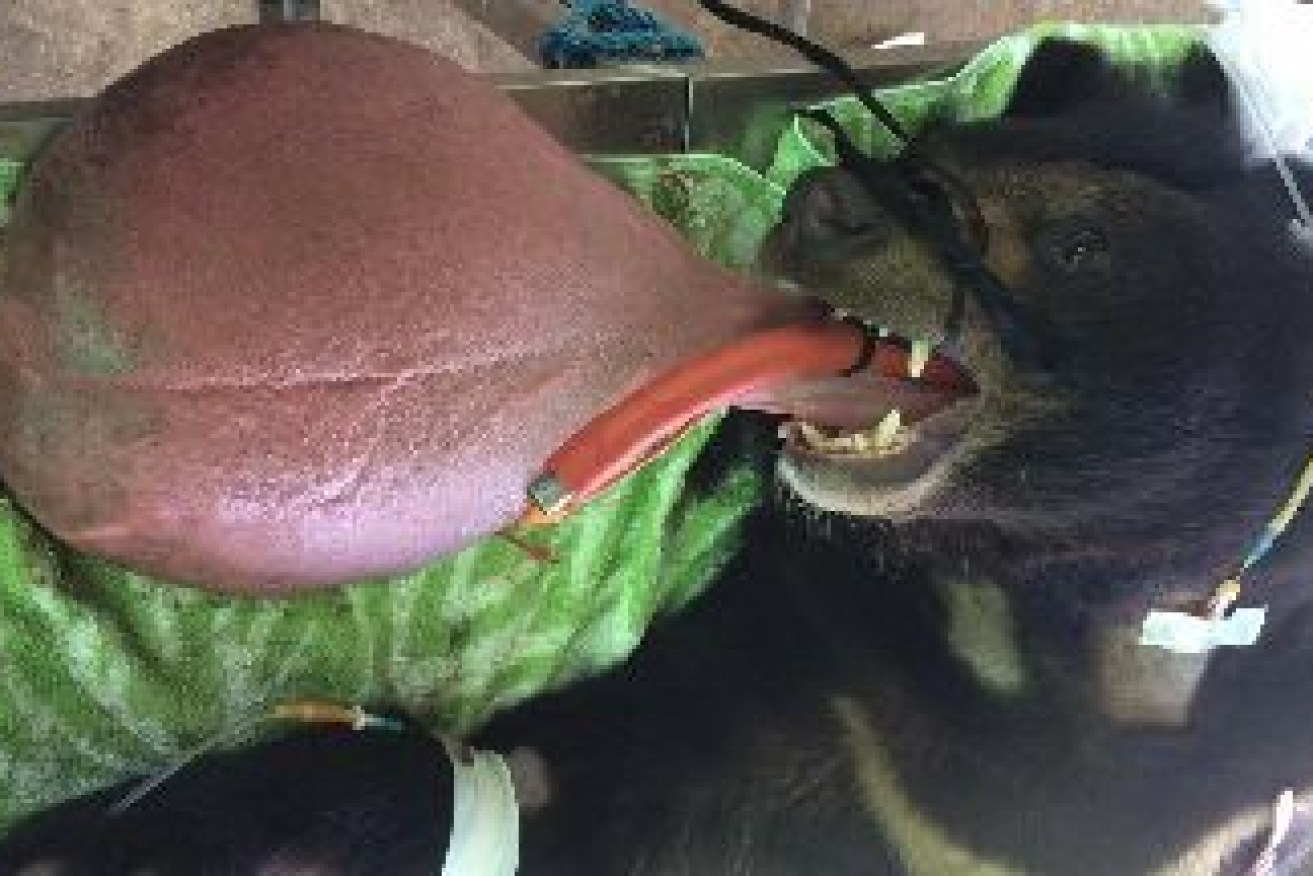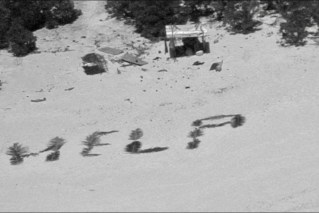Bear’s giant tongue successfully removed in four-hour operation

Before the operation, Nyan htoo's tongue dragged along the ground.
A rescued bear has been given a new lease of life after vets successfully operated to remove a tongue so large it was dragging along the floor.
Over four hours, an international team worked in soaring temperatures to remove three kilograms of tissue.
“I’ve worked with bears for over 10 years and I’ve never seen anything like it,” said Heather Bacon from the University of Edinburgh’s Royal (Dick) School of Veterinary Studies.
When Nyan htoo – meaning “bright” – and its sibling Kan htoo were cubs, they were taken from their mother in Myanmar and destined for illegal sale in China, where there is demand for bile from bears’ gall bladders to use in traditional medicine.

Nyan htoo and Kan htoo were rescued from traffickers as cubs, and have lived in a monastery in Myanmar every since. Photo: University of Edinburgh
The two Asian black bears, also called moon bears after the white half-moons on their chests, were rescued and taken in by monks.
Soon after rescuing the bears, the monks noticed Nyan htoo’s tongue was enlarged. They contacted vets, who first operated in 2016.
Despite Nyan htoo making a good initial recovery, the swelling returned and grew worse until the tongue dragged along the floor and was being injured against Nyan htoo’s teeth.
By June 2017, the tongue weighed so much Nyan htoo would rest its head on cage bars to support it.
For the second attempt at surgery, Ms Bacon was joined by veterinary nurse Caroline Nelson from the Animals Asia Bear Rescue Centre in Vietnam.

Veterinary surgeon Heather Bacon and her team worked for four hours in tropical temperatures to remove 3 kilograms from Nyan htoo’s tongue. Photo: University of Edinburgh
Romain Pizzi from Wildlife Surgery International worked with bear charities to develop a plan to alleviate Nyan htoo’s suffering.
The surgery was declared a success, and Nyan htoo is expected to recover and enjoy a more normal quality of life.
“This was a really unusual medical condition – never before seen in any species of bear – but we weren’t about to give up on Nyan htoo,” Ms Nelson said.
“Now he will be able to eat much more comfortably, sleep in more natural positions and move more freely for the rest of his life.”
Vets now believe the swelling was elephantiasis, caused by parasitic worms carried by mosquitoes, which is common in people in Myanmar but has never been reported in bears.








